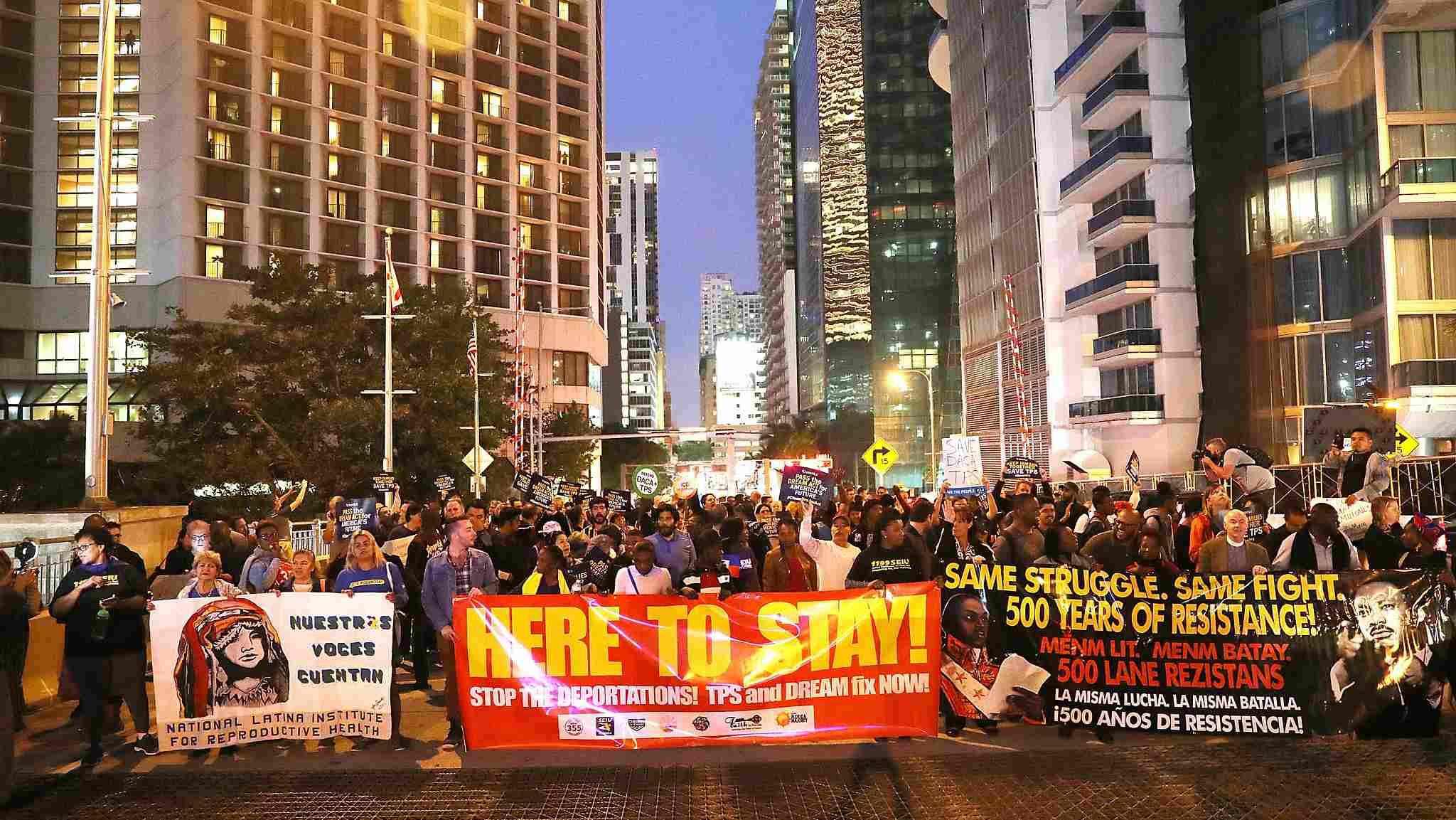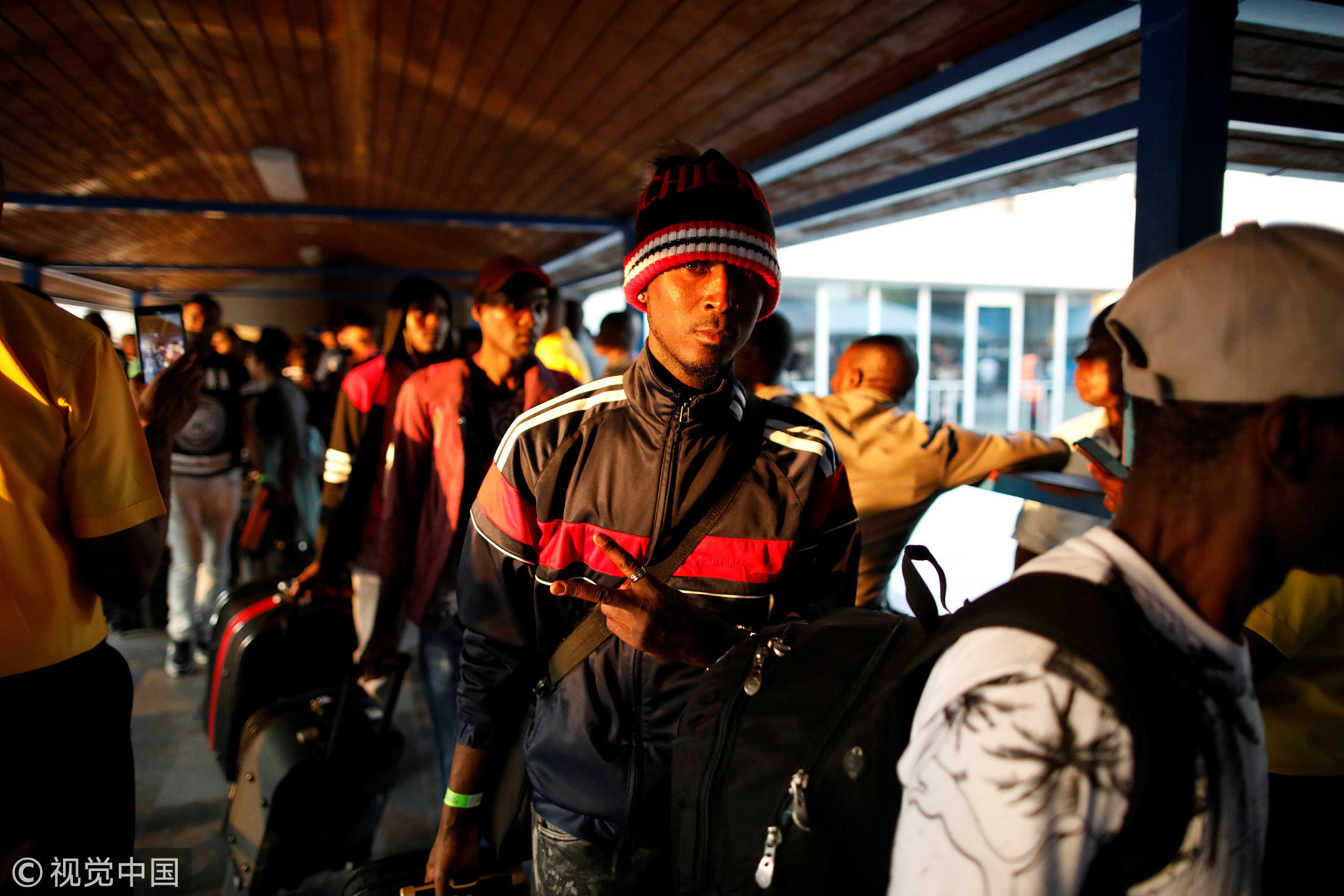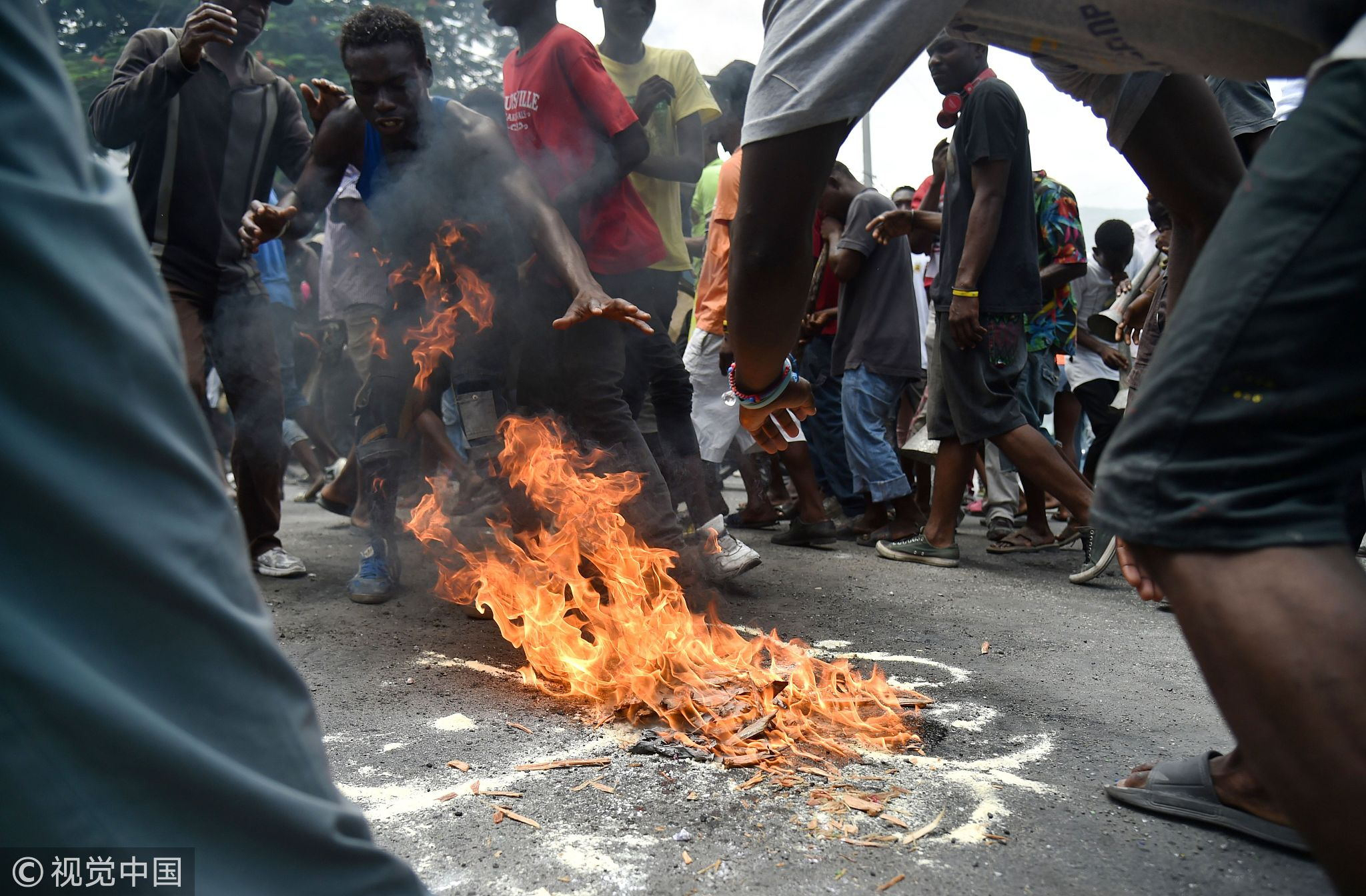
World
15:20, 04-Dec-2018
Anxious Haitians weigh immigration options under Trump
Updated
14:25, 07-Dec-2018
By Bertram Niles

Recently published statistics that show Haitian-Americans topping the list of American citizens seeking asylum in Canada highlight the growing fear that their special immigration status in the U.S. will end in the coming months.
In October, a federal judge in California put a temporary hold on the Trump administration's plans to stop renewing the program known as Temporary Protected Status, or TPS.
The Justice Department has appealed the ruling, leaving the 59,000 or so Haitian TPS holders facing uncertainty as they consider their options.
Some have clearly already decided that their futures lie elsewhere.
Last year, 2,550 American citizens, about 80 percent of them of Haitian descent, applied for asylum in Canada – six times more than 2016, according to figures published by Canadian authorities
"The vast majority of U.S. citizens claiming asylum are minor asylum claimants who were born in the United States whose parents are citizens of another country," Peter Liang, a spokesman for Immigration, Refugees and Citizenship Canada, was quoted by CNN as saying.
"In these instances, the claims of persecution are made against the parents' country of origin, not the United States. However, given their citizenship, the minor children appear as U.S. citizens in these tables. These children predominately accompanied Haitian or Nigerian national adults."

Haitians walk out of the international airport in Port-au-Prince after returning from Chile on November 7, 2018. A total of 1,600 Haitians have signed up for the “humanitarian" flights by the government of center-right President Sebastian Pinera but which have been criticized by migrant groups as “forced deportations.” /VCG Photo
Haitians walk out of the international airport in Port-au-Prince after returning from Chile on November 7, 2018. A total of 1,600 Haitians have signed up for the “humanitarian" flights by the government of center-right President Sebastian Pinera but which have been criticized by migrant groups as “forced deportations.” /VCG Photo
“We left because President Trump said he wanted to deport people,” one woman who has already crossed the border and identified only as Tiroude told The Guardian newspaper last month. She and her husband, along with their American-born 18-month-old daughter, however, face an anxious wait before their asylum application is decided.
Haitians were first granted TPS under the Obama administration following the devastating earthquake in January 2010 that killed 300,000 people. It was meant to last 18 months but has been extended several times.
The program allows nationals of a country experiencing a humanitarian disaster to live and work legally in the United States. A handful of other nations also benefit.
The Trump administration has signaled that the program will end in July 2019, a decision that is seen as part of the president's broader efforts to tighten restrictions on immigration and comes despite calls from even some fellow Republicans to continue the relief.
The administration has judged that conditions in the country have improved considerably to allow TPS holders from Haiti to return safely to their homeland.
That assessment is hotly disputed, with activists pointing out that the country, the poorest in the Western hemisphere, has been hit by a cholera epidemic and tropical storms since the hurricane.

Demonstrators perform a voodoo ceremony during a march through the streets of Port-au-Prince, to protest against the government of President Jovenel Moise and against Prime Minister Jack Guy Lafontant, who later resigned, July 14, 2018. /VCG Photo
Demonstrators perform a voodoo ceremony during a march through the streets of Port-au-Prince, to protest against the government of President Jovenel Moise and against Prime Minister Jack Guy Lafontant, who later resigned, July 14, 2018. /VCG Photo
And to make matters worse, the past month has seen the return of deadly street protests in the capital Port-au-Prince, this time in support of calls for the resignation of the country's president amid allegations of government corruption.
In response to the renewed violence, the U.S. State Department "authorized the departure of non-emergency U.S. government personnel and their families" from Haiti on November 29
In a lengthy article this week on the fight by Haitians against TPS, the magazine Mother Jones points out that the plight of Haitians have been largely ignored by international media. Unlike the stories that followed the Trump administration's attempt to ban people from Muslim countries traveling to the U.S. or its family separation policy at the American border, TPS holders have made few headlines.
Many Haitians say they are worried sick about being forced to upend their lives if the program ends. Some, like Wilna Destin, are defiant. “I'm going to stay no matter what,” she told Mother Jones. “I don't want to take [my kids] to Haiti, and I don't want to leave them with the Department of Children and Family Services. Even if you want to send the parents, what about the kids?”
Hope in the new House of Representatives
A possible ray of hope has opened up now with the Democrats poised to take control of the U.S. House of Representatives in January.
"We will protect TPS recipients and those fleeing unimaginable violence," Nancy Pelosi, who is expected to become House speaker, said in a statement on Saturday in response to calls from fellow lawmakers for the party to schedule early votes on legislation to codify protections for immigrants with TPS as well as recipients of another Obama-era program, Deferred Action for Childhood Arrivals (DACA), which shields undocumented immigrants brought to the U.S. as children.
"America draws strength from our long, proud heritage as a nation of immigrants. In the majority, Democrats will work to reverse the Republicans' destructive anti-immigrant agenda," Pelosi said.
Meanwhile, for those eyeing the northern U.S. neighbor as an alternative, the picture is not rosy. According to The Guardian, only about one in four Haitian asylum applicants were successful last year in Canada.
(Top Photo: Protesters walk through the streets of Miami as they protest the Trump administration's immigration policies on January 17, 2018, in support of immigrant communities like Haitians who call South Florida home. /VCG Photo)

SITEMAP
Copyright © 2018 CGTN. Beijing ICP prepared NO.16065310-3
Copyright © 2018 CGTN. Beijing ICP prepared NO.16065310-3